

The topic is a timely one and an important one both for the nation and for Washburn Law. The Symposium will consist of a keynote speaker and two panels:
9:00 a.m. - Welcomes and introductions
9:15 a.m. - Opening Address by U.S. Congresswoman Sarah McBride
9:30 a.m. - Introductory Remarks from Professor James R. May
9:45 a.m. - Panel 1
12:15 p.m. - Break to pick up box lunches
12:30 p.m. - Lunch keynote presentation by Dr. Pin
1:15 p.m. - Break
1:30 p.m. - Panel 2
3:35 p.m. - Closing remarks
3:45 p.m. - End of Program
Professor of Comparative Public Law
University of Padova
Professor Pin has clerked for the Italian Constitutional Court and held visiting positions at several universities including Emory, Notre Dame, and William and Mary (United States); Bar-Ilan and Reichman (Israel); Lomonosov Moscow State (Russia); and Trinity College (Ireland). His academic articles have appeared in American, British, French, German, Israeli, Italian, and Spanish journals. His scholarship has examined the relationship between Catholicism, Islam, and the secular state, religious freedom in the West and the Middle East, the notion of human dignity, and the challenges to freedom posed by artificial intelligence. His latest books are Religious Freedom Without the Rule of Law? The Constitutional Odysseys of Afghanistan, Egypt, and Iraq and the Fate of the Middle East (Brill 2024) and Dignity in Judgment: Constitutional Adjudication in Comparative Perspective (Oxford University Press, forthcoming).
View website: Andrea Pin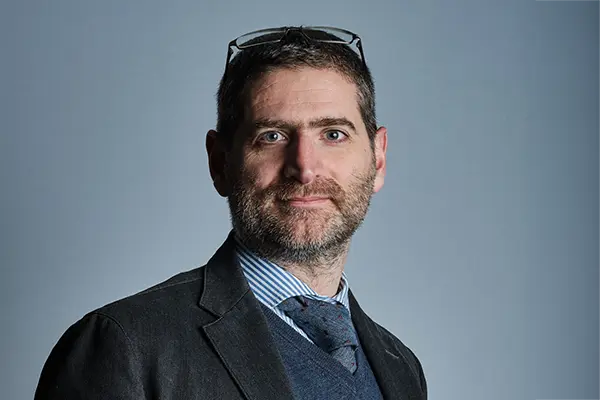
Representative Sarah McBride will provide prerecorded opening remarks for the 2025 Symposium.
Congresswoman Sarah McBride proudly represents our country’s First State, Delaware, as its sole member of Congress. She grew up in Wilmington and has been serving Delaware for decades as a public servant and advocate. From 2020-2025, Congresswoman McBride served as State Senator for the First State Senate District. She worked for former Governor Jack Markell and the late Attorney General Beau Biden, and served as the national spokesperson for the Human Rights Campaign, the nation’s largest LGBTQ equal rights organization.
As a state senator, McBride passed legislation expanding access to health care, requiring mental health and media literacy education in public schools, promoting green technologies, and protecting workers and families. Prior to her service in the State Senate, McBride led the successful effort to pass a landmark non-discrimination law in Delaware. For her work and advocacy, former Gov. Markell awarded McBride the Order of the First State, making her one of the youngest Delawareans granted the state’s highest civilian honor.
Visit website: Sarah McBride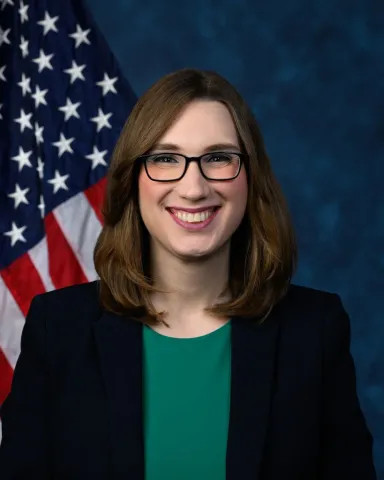
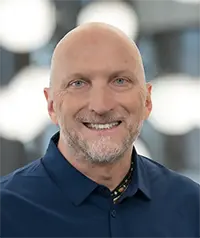
James R. May
Richard S. Righter Distinguished Professor of Law
Washburn University School of Law
James R. May, Esq. is Richard S. Righter Distinguished Professor of Law at Washburn University, where he teaches environmental law, constitutional law and human rights, and co-directs the program in environmental, energy and resources law. May also serves as Distinguished Professor of Law Emeritus at Widener University, where he was Chief Sustainability Officer and founded programs in Human Dignity Rights and Environmental Rights, and helped establish joint programs with universities around the globe. May has served as Visiting Professor at Georgetown, Duquesne, Hawai’i, Pace, Pittsburgh, Utah, Vermont, and with universities in Brazil, Haiti, France, Germany, Pakistan, Spain, South Africa, Turkey and elsewhere. May has published 20 casebooks and treatises and more than 120 book chapters spanning environmental law and human rights. He is the founder of Dignity Rights Advocates, a member of Phi Kappa Phi, and recipient of the American Bar Association’s Award for Distinguished Achievement and many other awards.
Visit website: James R. MayOur morning panel examines the roots and evolution of dignity as a right by considering its philosophical origins, historical role across the world, and doctrinal interpretations by U.S. and international courts. In a time where rights thought to be fundamental are faced with new challenges, this panel will consider the possibility and ramifications of treating dignity as a distinct, and actionable right.
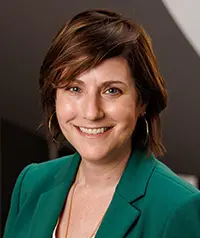 Johanna Kalb
Johanna Kalb
Dean
University of San Francisco School of Law
Johanna Kalb is Dean of the University of San Francisco School of Law. She previously served as Dean at the University of Idaho College of Law. Her research and teaching interests include federal and state constitutional law, international human rights, and the law of democracy. She is a co-author of the first law school textbook focused on domestic human rights: Human Rights Advocacy in the United States (West, 3d. ed. 2023). Her scholarship appears in U.C. Irvine Law Review, the Yale Journal of International Law, the Yale Law and Policy Review, and the Stanford Journal of Civil Rights and Civil Liberties, as well as the Washington Law Review Online, Michigan Law Review Online, the NYU Law Review Online, and the Yale Law Journal Forum.
She is an academic fellow of the National Civil Justice Institute, and member of the Board of Trustees of the Law School Admission Council and the Deans Steering Committee of the American Association of Law Schools. Johanna Kalb is a graduate of Yale Law School and the Johns Hopkins School of Advanced International Studies.
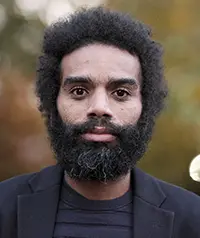 Barrett Holmes Pitner
Barrett Holmes Pitner
Author; Founder and Philosopher-in-Chief,
The Sustainable Culture Lab
Visit website: Barrett Holmes Pitner
Barrett Holmes Pitner is the founder and philosopher-in-chief of The Sustainable Culture Lab and author of The Crime Without a Name: Ethnocide and the Erasure of Culture in America, which was selected by NPR as one of their top books of 2021.
Pitner is a philosopher, writer, educator, and journalist. He has been a contributing columnist for The Daily Beast, The BBC, The Guardian, The Daily Dot, The Huffington Post, and other publications. Pitner currently teaches at George Washington University. In addition to printed work, Pitner has also appeared on political news shows including Hardball with Chris Matthews, Morning Joe, and The Diane Rehm Show.
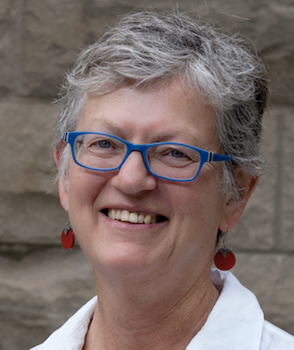 Palma Strand
Palma Strand
Co-Founder and Research Director
Civity
Palma Strand is the co-founder and research director of Civity, a national nonprofit that supports local leaders in creating a culture in which people engage across social and other differences with respect and empathy. Relational infrastructure, aka civic muscle, is the foundation for community well-being and resilience. Civity trains people to engage in civity conversations, an approach documented to be effective in increasing social trust by the Stanford-based Strengthening Democracy megastudy.
She is also professor emerita of law at Creighton University in Omaha, Nebraska, where she taught in the Negotiation and Conflict Resolution Program. Most recently, she was visiting professor at Marquette University Law School. She also designs and facilitates conversations on race and belonging for teachers and parents in public education. She holds a BS (Civil Engineering) from Stanford University, a JD from Stanford Law School, and an LLM in Alternative Dispute Resolution and Legal Problem-Solving from Georgetown University Law Center.
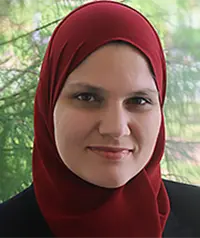 Nadia B. Ahmad
Nadia B. Ahmad
Associate Professor of Law
Barry University
Nadia B. Ahmad is professor of law at Barry University School of Law and Ph.D. candidate in Environmental Studies at Yale University. She specializes in environmental law, climate justice, and the intersection of emerging technologies with legal frameworks.
Professor Ahmad has published extensively on environmental federalism, energy siting, and climate governance with scholarship appearing in the Duke Environmental Law & Policy Forum, Virginia Environmental Law Journal, University of Miami Law Review, and Kansas Law Review. She co-edits the Land Use and Environmental Law Review and co-authored Environmental Justice: Law, Policy & Regulation. Her interdisciplinary approach combines legal scholarship with data science and technology innovation. She co-founded Mudder AI, a climate technology platform that applies artificial intelligence to disaster response legal frameworks. Professor Ahmad serves as an Affiliated Faculty Member at Harvard Law School's Institute for Global Law and Policy and was a Visiting Associate Professor at Yale Law School. She co-chairs the American Bar Association's Environmental Justice Task Force.
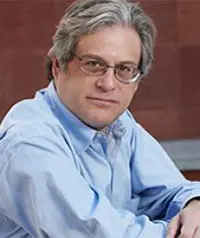 Peter Bayer
Peter Bayer
Emeritus Professor of Law
University of Nevada Las Vegas, William S. Boyd School of Law
Peter Bayer earned both a J.D. degree and an M.A. in Sociology from New York University Law School in 1978. In 1984, he earned an LL.M. from Harvard Law School. He came to the Boyd School of Law from St. Thomas University School of Law in Miami, Florida where he served as Assistant Professor and Director of the Legal Research, Analysis, and Writing Program. In addition to teaching stints at Boston College Law School, the University of Baltimore Law School, and the University of Miami School of Law, Professor Bayer worked as Senior Patient Advocate for Quantum Health Resources, Trial Attorney for the Equal Employment Opportunity Commission, and Staff Attorney for the Center for Advocacy, Research, and Planning. He also clerked for the Honorable Clifford Scott Green, United States District Court for the Eastern District of Pennsylvania. Professor Bayer teaches Lawyering Process, Jurisprudence, Administrative Law, Employment Discrimination, and Judicial Writing.
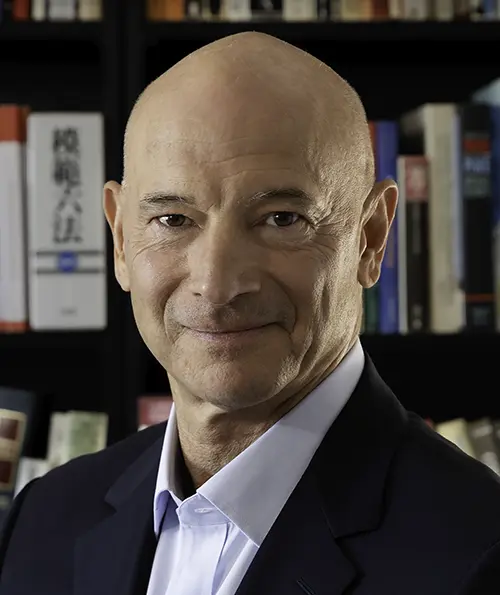 Craig Martin
Craig Martin
Professor of Law
Washburn University School of Law
Craig Martin teaches public international law, the law of armed conflict, constitutional law, and professional responsibility. His primary areas of scholarly interest and academic writing are international law, with an emphasis on the use of force and the law of armed conflict, and comparative constitutional law, with a focus on rights and war powers in Anglo-American and Japanese constitutional law. He also writes periodically on these topics in the popular media. He is Co-Director of the International and Comparative Law Center.
Professor Martin returned to the academy after several years in the practice of law, completing his doctorate (S.J.D.) at the University of Pennsylvania Law School in 2010. His research examined the constitutional incorporation of international law principles on the use of force, looking at the Japanese constitution as one example, and developed theoretical arguments for greater constitutional limits on the use of force more generally in constitutional democracies.
After growing up in St. Lucia, West Indies, Professor Martin did his undergraduate work at the Collège Militaire Royal and the Royal Military College of Canada, graduating with a B.A. (Hons.) in history. He served four years as a Naval Officer in the Canadian Armed Forces, during which time he was a watchkeeping and divisional officer in HMCS Preserver, and a public affairs officer in MARCOM HQ and at CFB Halifax. He also spent time as a naval attaché in the Canadian Mission to the United Nations in New York City, where he worked on disarmament issues in the First Committee. Following his service he went to Japan on a Monbushō Scholarship, where he spent close to four years studying Japanese and public law, and conducting research on conflicts between Japan and the U.S. over Japan’s international legal interests in Manchuria in the 1920s. Professor Martin graduated from Osaka University, Graduate School of Law and Politics, with an LL.M.
Upon returning to Canada he studied at the University of Toronto, Faculty of Law, where he earned a J.D. Upon being called to the Bar of Ontario and becoming a member of the Law Society of Upper Canada, Professor Martin practiced civil litigation for approximately eight years in Toronto, first at Stikeman Elliott LLP and then Lenczner Slaght Royce Smith Griffin LLP. He appeared before all levels of court and various administrative tribunals in Ontario, working on corporate-commercial and securities law, tort law, professional malpractice, administrative law, and constitutional law claims. During this time he also taught courses at Osgoode Hall Law School in Toronto, and at Osaka University Graduate School of Law and Politics.
Turning from theory to practice, the afternoon panel examines how dignity rights are actually pursued and protected. Panelists from diverse legal and social contexts will examine dignity’s role in litigation, policymaking, and other forms of advocacy. Discussion will address opportunities to advance dignity rights, existing and presently-evolving barriers to these opportunities, and on-going domestic and international efforts to secure human dignity rights.
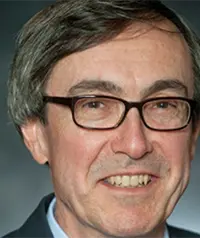 Bill Piatt
Bill Piatt
Professor of Law
St. Mary's School of Law
Bill Piatt was born in Santa Fe. He is Hispanic/Native American (Genizaro), Catholic, and fluent in Spanish. Prior to his arrival at St. Mary’s, he had taught at five law schools in the U.S., had engaged in private practice, and had helped to establish indigent criminal defense and civil legal assistance offices. Piatt had also taught in Mexico and Spain, and assisted Native American communities in this country.
His background has led him to continue his work with Indigenous communities, and to participate in religious and cultural ceremonies. Piatt’s writings are the first to discuss the legal rights of non-federally recognized Indians. His background has also enabled him to expand on incorporating his Catholic faith into his teaching, research and service.
Piatt’s writings, including ten books and dozens of articles, focus on Human Rights. They have received numerous awards and have been cited in hundreds of publications. His background in broadcasting has assisted him in participating as a commentator on law-related topics in English and in Spanish, on radio and TV. Piatt served as Dean of St. Mary’s Law School from 1998 to 2007.
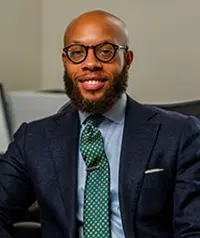 Etienne C. Toussaint
Etienne C. Toussaint
Associate Professor of Law
University of South Carolina, Joseph F. Rice School of Law
Visit website: Etienne Toussaint
Etienne C. Toussaint is an associate professor of law at the University of South Carolina Joseph F. Rice School of Law. A private law scholar, he studies the historical development of poverty, food insecurity, and environmental injustice in the U.S. political economy. Drawing on critical legal theory, his work explores how race, culture, and social movements challenge private law’s ordering of the economy. He teaches Contracts, Business Associations, Law and Political Economy, and Critical Legal History, among other courses. Professor Toussaint’s scholarship appears in leading journals, including the Columbia Law Review, California Law Review, Virginia Law Review, Georgetown Law Journal, UCLA Law Review, and Harvard Environmental Law Review, among others. Nationally recognized for his teaching, scholarship, and service, he has received the National Bar Association’s 40 Under 40 Award, the Society of American Law Teachers Junior Great Teacher Award, and multiple faculty honors at South Carolina Law. Born and raised in the South Bronx, Professor Toussaint is the proud husband of Dr. Ebony A. Toussaint, Ph.D., and the father of their three amazing sons.
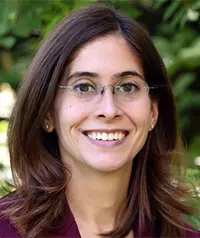 Rachel Bayefsky
Rachel Bayefsky
Associate Professor of Law
University of Virginia School of Law
Visit website: Rachel Bayefsky
Rachel Bayefsky writes about constitutional law, federal courts, civil procedure, and legal theory. Her book Dignity and Judicial Authority was published by Oxford University Press in 2024.
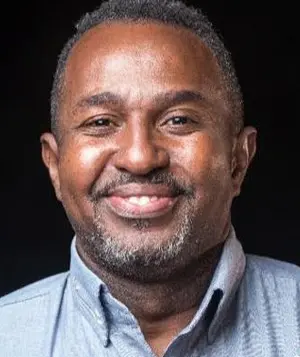 Daniel Tillias
Daniel Tillias
Program Logistics Manager, NAAHP Conference (2024)
Co-Founder & Chair, SAKALA
Coordinator of the Job Power Initiative
Daniel Tillias has been a community development advocate for over 20 years. He is a social entrepreneur and a visionary behind several sustainable initiatives. Daniel has been engaged for many years collaborating with NGO’s and donors in Haiti to encourage dignity as a best practice that can alleviate people from extreme poverty. Daniel’s work focus has been on his hometown: Cite Soleil, the largest underserved community of Haiti. He co-founded there in 2006 the largest Community Center known as SAKALA (Community Center for Peaceful Alternatives), which is now home for the largest urban garden in Haiti that has been awarded several innovating prizes, and the most recent is the prestigious CNN HERO 2019 award.
Daniel has a Master in Peace building and Community development and a degree in Human Services. He is currently engaging in JOB POWER: a mega initiative with the Haitian diaspora and community leaders in Haiti to create employment opportunity for all Haitian youth in the agriculture sector. He is also a writer, currently on the Board of Several organizations, an advisor for many international groups, and his field experience is a great asset in several Humanitarian brainstorming and reflection on Haiti.
Daniel believes the real hope for Haiti start with more jobs and education. He believes green Jobs and education through a restorative support from countries that have taken resources away from the country is one way to make Haiti the better place that its history make it deserve.
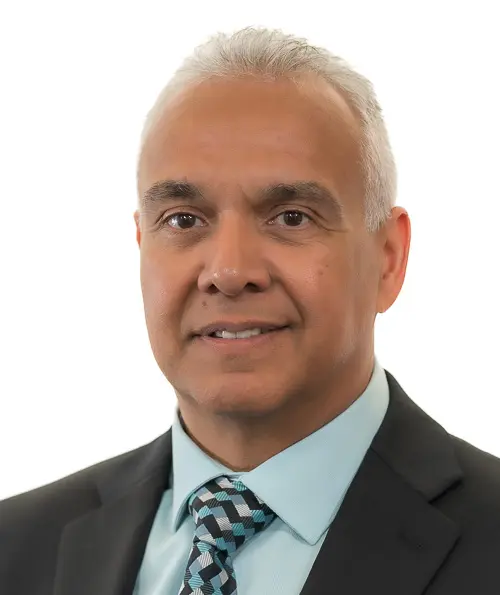 Rory Bahadur
Rory Bahadur
James R. Ahrens Chair for Tort Law, Professor of Law
Washburn University School of Law
Rory Bahadur joined the Washburn Law faculty in 2007 and is one of only 26 teachers nationwide included in the book, What the Best Law Teachers Do. He teaches Torts, Civil Procedure, Products Liability, Privacy, Admiralty and Maritime Law, and Federal Courts and presents nationally and internationally on assessment and teaching methods. He was voted Professor of the Year at Washburn in 2010, 2012, 2021 and 2024 and awarded the Ned Fleming Excellence in Teaching Award in 2023.
Prior to joining Washburn Law, Professor Bahadur practiced admiralty and maritime law in south Florida. Professor Bahadur has a Bachelor of Science degree in Zoology (Honors) from the University of the West Indies and a Master of Arts in Marine Affairs from the University of Miami's Rosenstiel School of Marine and Atmospheric Science. Before earning his juris doctor from St. Thomas University School of Law where he graduated summa cum laude and first in his class, he worked for the National Marine Fisheries Service as a marine biologist in Alaska's Aleutian Islands and Bering Sea, and for the United States Army Corps of Engineers as a shipboard, marine endangered species consultant.
His recent scholarship examines the influence of implicit bias and systemic racism on the law, teaching, and assessment. He is the co-author of a torts casebook and author of a civil procedure casebook. In his spare time, he is a USSF certified competitive soccer coach, certified Kansas City BBQ society judge, a member of a competition BBQ team, and is advanced open water and mixed gas/research diver SCUBA certified.